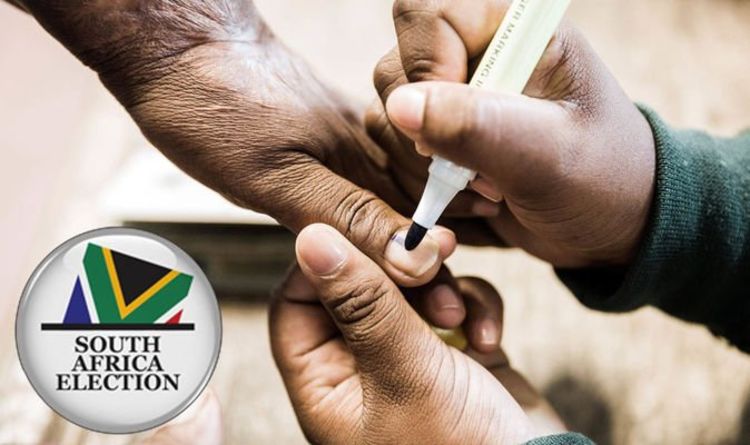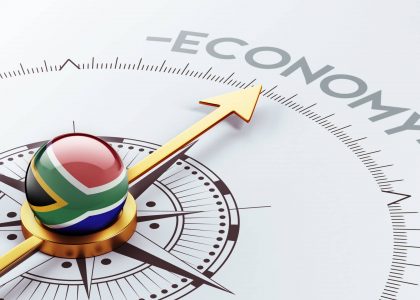As one of the largest economies in Africa, the South African economy, with its GDP of around $370 billion, stands on the cusp of a defining moment with the approach of the 2024 elections. The nation’s economic indicators reveal a mixed economy with sectors ranging from agriculture and mining to manufacturing and services, each contributing to the complex tapestry of its economic landscape.
The forthcoming elections could signal a pivotal shift in the African National Congress’s (ANC) long-standing dominance, against a backdrop of key challenges such as economic recovery post-COVID-19, addressing unemployment, tackling corruption, and land reform issues.
The State of South Africa’s Economy Ahead of 2024 Elections
As I delve into the current economic landscape of South Africa, it is imperative to highlight a few critical metrics that paint a vivid picture of the nation’s fiscal health ahead of the pivotal 2024 elections. Here are the key indicators:
Growth Projections:
The International Monetary Fund (IMF) revised its forecast, indicating that South Africa’s economy is likely to grow by a modest 1% in 2024, a decrease from the initial forecast of 1.8%. This projection suggests a trend of decreasing economic growth for South Africa in recent years, highlighting ongoing challenges and constraints that impact the country’s economic performance.
Unemployment Rates:
A slight dip in unemployment has been observed, with the rate now at 32.1%, a marginal increase from the previous quarter’s 31.9%. This high unemployment rate is a significant challenge for the country, with over 30% of the population being unemployed. The situation is particularly dire for young people, with a youth unemployment rate of 61% for 15- to 24-year-olds and a staggering 71% when accounting for those who have given up on finding work.
Inflation and Debt:
The inflation rate hovers around 5%, aligning with the South African Reserve Bank’s (SARB) target range of 3-6%. However, the government debt-to-GDP ratio is on an upward trajectory, reaching 72.2%. This level of government debt to the country’s GDP is a significant economic indicator that influences investor confidence, borrowing costs, and overall fiscal health.
Further complicating the economic scenario are the inefficiencies plaguing key state-owned enterprises such as Eskom and Transnet, which continue to be a drag on economic growth. Additionally, legislative changes affecting foreign investment and trade freedoms, alongside static capital movement, underscore the complexities of South Africa’s economic environment.
The social and economic indicators reflect a nation grappling with high levels of unemployment, stagnant growth, and worsening inequality. These issues are compounded by a deteriorating education system and environmental concerns, despite improvements in health indicators and women’s economic rights over the last fifteen years.
In the lead-up to the elections, it is clear that the South African economy is at a crossroads. The electorate’s concerns over the economy, unemployment, and corruption are set to significantly influence voter sentiment and could herald a shift in the political landscape.

Challenges Facing the ANC and Potential for Loss of Dominance
Analyzing the ANC’s Vulnerabilities Ahead of the 2024 Elections
The African National Congress (ANC) faces an unprecedented challenge to its three-decade rule as the 2024 elections loom. My analysis identifies several critical vulnerabilities:
Erosion of Electoral Base: The ANC’s once unassailable position is threatened by the emergence of the MK Party, which could significantly reduce ANC votes in Kwazulu-Natal, a key province.
Corruption and Governance Issues: Allegations of nascent corruption and mismanagement have tarnished the ANC’s reputation, leading to downgrades by international rating agencies.
Public Dissatisfaction: The ANC confronts a potential drop below 50% of the vote due to public discontent with service delivery, corruption, and an ongoing energy crisis.
International Relations Concerns: The ANC’s affiliations with China and Russia have sparked debates over its dedication to global democracy and human rights, potentially alienating certain voter segments.
The emergence of New Parties: The rising RISE Mzansi party and the uMkhonto weSizwe party, backed by ex-President Jacob Zuma, signal a diversifying political landscape.
Coalition Governance Prospects: With the ANC’s support dwindling below 50% in polls, coalition governments are likely, despite their historically unstable nature in South African politics.
Voter Turnout as a Decisive Factor: The level of voter turnout in 2024 will be pivotal; low turnout could inadvertently benefit the ANC, maintaining its majority.
These points illustrate the precarious position of the ANC as it navigates the complex political terrain ahead of the 2024 elections. The potential for a power shift is clear, with the electorate’s growing disillusionment and the rise of viable opposition poised to reshape South Africa’s political future.

Implications of a Shift in Political Power
The introduction of independent candidates in the upcoming 2024 elections is a game-changer, with the potential to significantly alter the political landscape in South Africa. Here’s how:
New Political Dynamics: The allowance of independent candidates to contest in the National Assembly and provincial legislatures could dilute traditional party votes, leading to more diverse representation.
Decentralization of Power: Should the ANC lose its grip on power, the election may result in a decoupling of national and provincial administrations, particularly in economically crucial regions like Gauteng.
Regional Political Realignment: A shift in South Africa’s political power could have ripple effects throughout the Southern African Development Community (SADC), injecting uncertainty into the region’s foreign policy and agenda.
The potential consequences of a political shift extend beyond governance:
Civil Liberties and Legal Frameworks: The recent mild deterioration in political freedom and legal constraints may be addressed or exacerbated depending on the new power dynamics, impacting civil society and the efficacy of the judicial system.
Coalition Governance: A move away from a dominant party system to a fragmented coalition model could result in a more volatile political environment, affecting stability and accountability.
Opposition Stance: The Democratic Alliance (DA), as the primary opposition, may play a crucial role in shaping post-election governance, with its current stance indicating an aversion to forming a coalition with the ANC.
These points suggest that the upcoming election is not merely a routine democratic exercise but a pivotal event that could reshape South Africa’s political fabric and its role in regional and international affairs.
The Role of Other Political Parties and Independent Candidates
As I consider the evolving political arena in South Africa, the role of other political parties and independent candidates in the upcoming 2024 elections is increasingly significant. The landscape is characterized by:
Diverse Political Landscape: A staggering number of 356 political parties are on the ballot, with 30 new parties registered between September 18 and December 31, 2023. These registered parties and independents, enhance the complexity of potential election outcomes and increase the number of ‘kingmakers’.
Opposition Parties’ Strategies: The Democratic Alliance (DA) under John Steenhuisen, is focusing on governance cleanup to prevent an ANC-EFF coalition, despite historical challenges in forming partnerships. The Economic Freedom Fighters (EFF), led by Julius Malema, continues to gain traction by addressing land and job issues, challenging both the ANC and DA.
Independent Candidates’ Impact: The Electoral Amendment Act now allows independent candidates to run in national and provincial elections, requiring them to gather substantial supporter signatures for eligibility. Voters will receive three ballots, reflecting the new inclusion of independents alongside political parties, with the IEC updating processes to accommodate these candidates. These elements underscore a shifting political dynamic, where traditional party dominance is questioned, and the electorate is presented with a broader spectrum of choices. The outcome of the 2024 elections could very well hinge on the ability of these varied political entities to resonate with and mobilize an electorate that is increasingly seeking alternatives to the status quo.
Conclusion
Drawing from the undercurrents of economic stress and political turbulence, it is evident that South Africa is on the brink of potentially transformative elections. With critical issues like unemployment, energy stability, and the battle against corruption serving as the electorate’s litmus test, the ANC’s decades-long rule faces a legitimate challenge. The hope for a renewed sense of accountability and effective governance resonates strongly with voters who are ready for change, underscoring the vast implications these elections hold for the country’s future.
As this vibrant democracy stands at a crossroads, the actions and decisions taken in 2024 will not only shape the South African political landscape but will also echo across the African continent. Citizens have the power to shape the future, to advocate for an economy that serves all, and to demand that their voices be amplified by representatives who embody their aspirations and resolve. Recognizing the importance of every vote, the call to actively participate in this defining moment is clear—embrace the opportunity to contribute to a robust democracy and discover how you can be part of the change.




